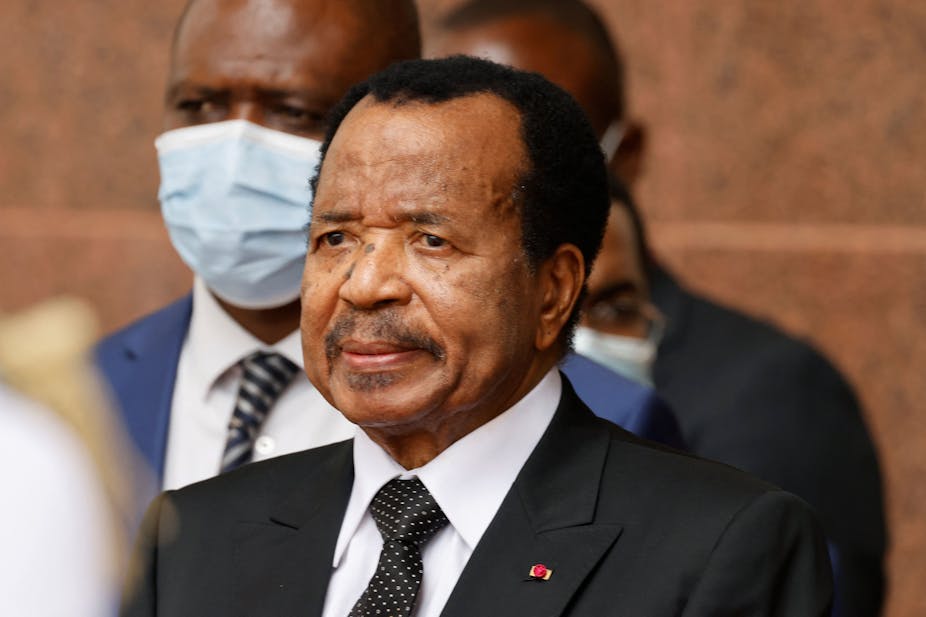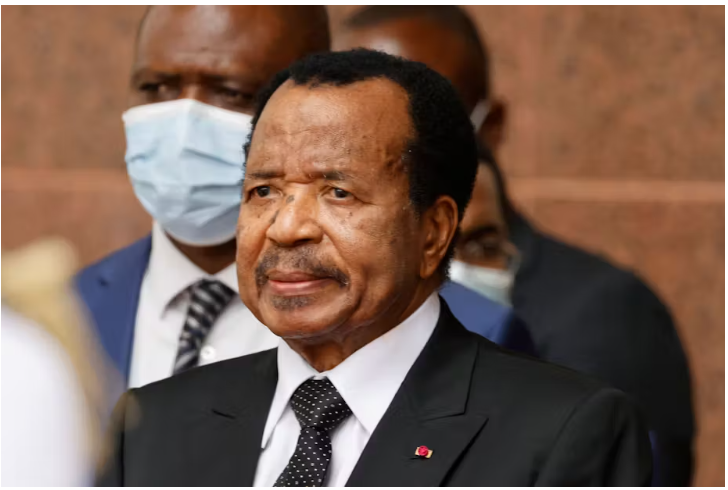
At 89, President Paul Biya of Cameroon stands as one of the world’s oldest leaders and one of Africa’s longest-serving heads of state. Since he assumed office in 1982, Biya has marked 40 years at the helm, securing his place as the continent’s second-longest serving leader after Equatorial Guinea’s Teodoro Obiang Nguema, who has been in power since 1979.
Under Biya’s leadership, Cameroon initially experienced a period of political stability, though his rule has since faced significant challenges. In the 1990s, political liberalization initiatives slowed, and opposition voices were increasingly suppressed. Today, the country grapples with ongoing instability, marked by the Anglophone crisis in the south-west and north-west regions and the incursion of Islamist extremists from Nigeria.
Despite increasing calls for political transition, Biya remains non-committal about stepping down when his seventh term ends in 2025. His prolonged rule raises questions about his staying power and why Cameroon has struggled to marshal a successful political transition. Scholars of African political regimes note that Biya’s dominance stems from several factors, including his consolidation of power within the ruling party, suppression of political opposition, and strategic manipulation of electoral processes.
When Biya took office in 1982 following the resignation of President Ahmadou Ahidjo, he promised democratic reforms, economic growth, and respect for civil rights. Initially, his “New Deal” policies seemed promising, with some steps toward political liberalization and improved economic performance. However, after a failed coup attempt in 1984, Biya became increasingly authoritarian. He purged rivals within the ruling party and ensured there was little to no meaningful opposition to his authority.
In 1990, amid growing external and internal pressure, Biya permitted multiparty elections, but over time, this move proved largely superficial. His ruling party, rebranded as the *Rassemblement Démocratique du Peuple Camerounaise (RDPC), solidified control through a combination of strategic alliances, political patronage, and manipulation of the electoral system. This approach led to a dominant-party system, further marginalizing any genuine opposition.
Cameroon’s political system is now characterized by hundreds of fragmented opposition parties—around 300 in total—many allegedly backed by the ruling party itself, creating a façade of democratic competition while diluting true opposition. This disorganization within the opposition has allowed Biya’s RDPC to dominate, holding a substantial majority in both the National Assembly and Senate, with only a small number of seats held by opposition parties. This overwhelming majority has enabled the ruling party to avoid checks and balances, giving Biya significant leeway in governance.
In addition, the ruling party has frequently leveraged electoral manipulation tactics, such as redrawing constituency boundaries to its advantage and allegedly engaging in electoral fraud. These actions have reinforced Biya’s control, allowing him to maintain his grip on power despite growing domestic and international pressure for change.
With mounting calls for a political transition and pressure from both the public and international observers, the question remains: will Biya relinquish power in 2025? His reluctance to commit to stepping down raises concerns about the future stability of Cameroon’s political landscape. Biya’s continued rule underscores the challenges faced by many African nations where aging leaders remain in office, often limiting opportunities for younger, more dynamic leadership to emerge.
Observers argue that Cameroon’s complex political environment highlights the need for institutional reforms, opposition unity, and a renewed focus on democratic processes to ensure a smooth and peaceful transition in the post-Biya era. For now, the country remains in a state of political tension, with many awaiting Biya’s next move as the end of his current term approaches.


